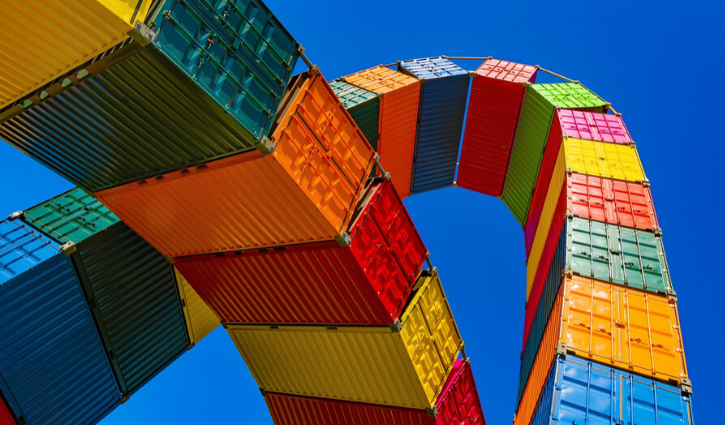Customs experts are an often unsung, but important, part of strategic Logistics operations. Here’s the lowdown on what companies should be looking for when hiring import / export professionals, and what the talent picture looks like on the ground.
On the Argentus blog, we support our recruitment business by shining the light on all things Supply Chain Management. With a particular focus on talent issues, we give our perspective on developing trends in the field, emerging technologies, changing skill profiles, and hiring strategies.
As part of this effort, every once in a while like to take the time to focus on one particular discipline within Supply Chain. These are often roles or competencies that play a key part in effective strategic Supply Chain operations – but don’t get a lot of attention. The goal is to help companies and hiring managers see the talent picture on the ground, and to help Supply Chain professionals decide the paths that their careers will take.
Today, we want to talk about Import / Export professionals.
Like Demand Planners, Production Planners, and some other front-line roles, Import / Export professionals are often unsung – but well-compensated – links in the chain. It’s a specialized skillset that often gets taken for granted. But companies who fail to hire strategically for this role can face major bottlenecks along their Supply Chains, which can lead to inventory shortfalls and other risks. So it’s worth exploring what makes a good Import / Export specialist, and what companies should keep in mind when developing their strategies around these roles.
First of all, what is an Import / Export specialist, and why are they important?
Import / Export professionals are on the Logistics branch of the larger Supply Chain Management tree. That means they’re focused on the nuts-and-bolts movement of raw materials and finished goods from Point A to Point B (and occasionally, Points C, D, and E). They specialize in getting goods across borders – the place where the physical movement of materials comes up against trade regulations and other government requirements. Import / Export people are skilled at navigating this political and regulatory bottleneck in the Logistics process to make sure that things get where they need to go.
Adding extra value:
If you don’t have people who understand this process, moving goods internationally is a non-starter. They’re a necessity. But – like many Supply Chain roles – organizations don’t often realize the major benefits they gain from having exceptional people in these roles. They allow companies to:
- Expand into international markets more nimbly.
- Gain the confidence to expand international supplier bases without opening yourself up to risk.
- Avoid bottlenecks and lower risk in the sourcing process that can lead to inventory shortfalls.
Some companies outsource this role to their 3rd Party Logistics providers or firms specialized in Import / Export. But others see the benefit of having this capability in-house as part of their strategic Supply Chain function. They’re especially necessary in industries with lots of trade regulation (for example Pharmaceutical, Aerospace or Defense). If you hire Import / Export superstars, they can act as strong in-house subject matter experts to provide advice about emerging changes to trade and regulation.
Today’s Import / Export professionals are dealing with a rapidly evolving situation on the ground. Even prior to COVID-19, they were dealing with navigating new issues around the the trade conflict between the U.S. and China. Now, with COVID-19, companies have to navigate new challenges – while also adapting to the Canada – United States – Mexico agreement (CUSMA), which replaced NAFTA and is now undergoing implementation. The Canadian government has committed to keeping goods flowing across borders during COVID-19, including extending timeframes on payment of customs duties, but there are still tricky waters to navigate, especially when it comes to sourcing goods from overseas.
It all makes for a complex picture – and skilled Import / Export professionals are the ones who can make the requirements clear, avoid risk, and execute.
So what should companies be looking for when improving their bench strength in this area?
From our perspective, here are the key competencies, in order from the nuts-and-bolts requirements, to more strategic considerations:
- Understanding of trade requirements, which can include CUSMA, World Trade Organization. Degrees in Customs & Trade Compliance, or Customs Certifications (e.g. Certified Customs Specialist or CCS) can be a good educational backbone.
- A deep understanding of requirements for different forms of transportation including freight, rail, air, and sea. Some organizations require people specialized in these modes of transportation. Others are more generalized.
- Attention to detail. At the junior end, Import / Export specialists will work on preparing shipping documents, permits, certificates, and other forms of documentation. They need to learn not only how to prepare this documentation, but how to “cross every T” and “dot every I,” because small errors can lead to large risks and bottlenecks.
- Competency with SAP and other ERP platforms, depending on the organization.
- Analytical ability and research. The very best Import / Export specialists will proactively prepare the organization for ongoing developments in trade requirements. That means being able to find and synthesize large amounts of information, and present it to Supply Chain leadership in the business, while recommending strategy to cope with risks.
- Ability to deal with many variables at a time. The cost to transport goods internationally includes consideration of point of pick up, point of departure, port of destination, customs cleared or in bond to defer, and type of transportation.
- Relationship-building. Like many other Supply Chain roles, these individuals deal with people up and down the chain including carriers, 3PLs, supply planners, production planners, sourcing, and other staff, depending on the organization. And like many other Supply Chain roles, the best Import / Export specialists can use these relationships to break down silos and find efficiencies that you wouldn’t otherwise consider.
The skills profile for Import / Export is specialized, including specialized knowledge, so compensation can be very competitive. But it also equips early to mid-career professionals with good foundational Supply Chain skills that build on as they broaden and develop their careers into other areas. Like many other specialized Supply Chain roles, great experienced import / export professionals are also hard to find.
This is an introduction. Of course there’s more to cover about Import / Export as a foundational element of many strategic Supply Chain organizations, but hopefully it gives a good base of what these people contribute, and what to look for when adding them to your team.
As always, reach out to Argentus if you have any immediate hiring needs in your Logistics or Import / Export function – or simply if you’d like to learn about how to bolster your bench strength in this area. ![]()




0 Comments